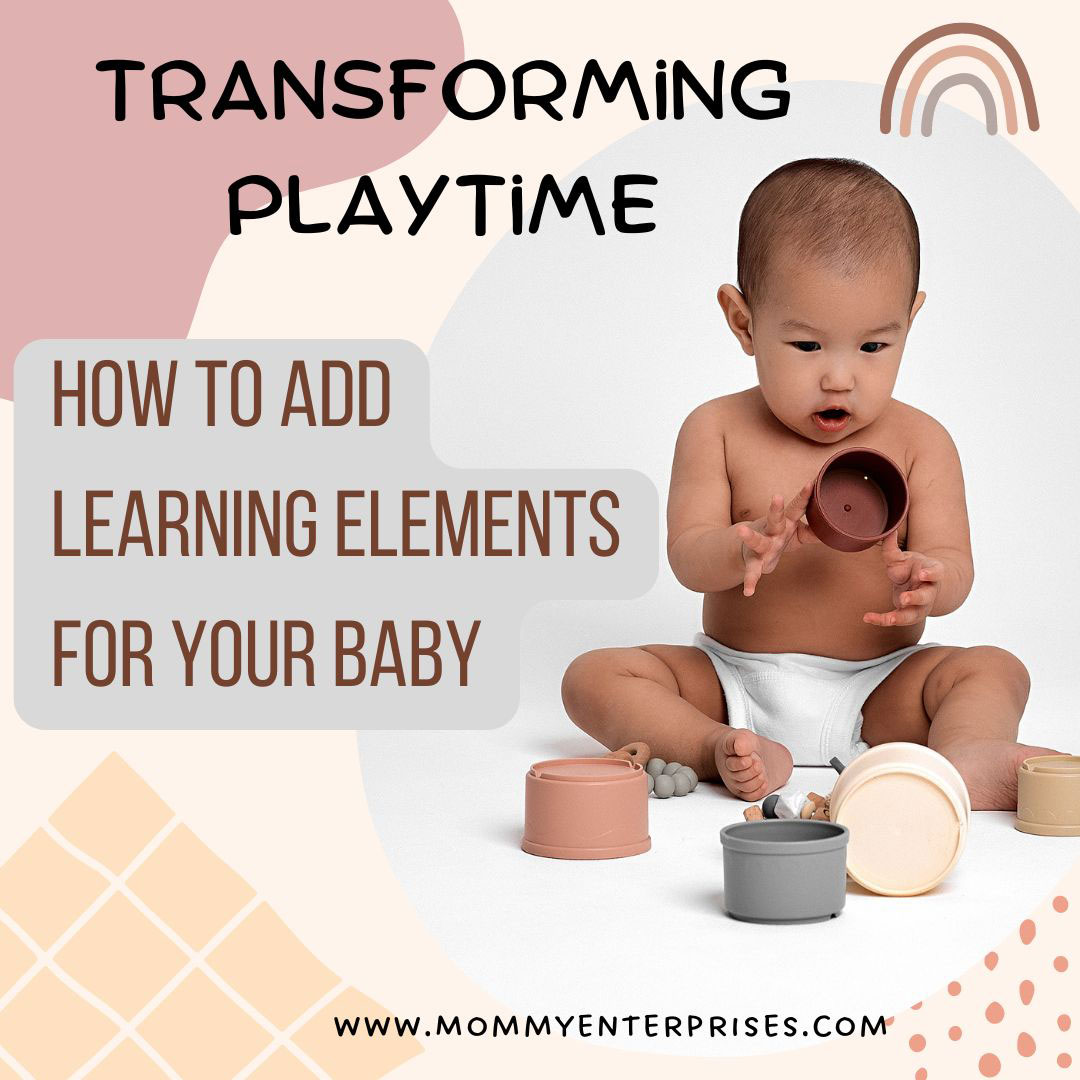As a parent, playtime is essential to your baby’s development. It provides a fun and interactive way for them to explore and learn about the world around them and helps strengthen their cognitive, physical, and social skills. However, as your baby grows, it’s important to make playtime more than just a source of entertainment. By incorporating learning elements into playtime, you can further enhance your baby’s development and set them up for success in the future. In this blog post, we’ll discuss some simple yet effective ways to transform playtime into a valuable learning experience for your baby.
The importance of play in early development
Playtime is not just about amusement; it’s a critical aspect of early development that shapes a baby’s brain architecture and prepares them for future learning and success. During these formative years, play activates neural pathways associated with problem-solving, social understanding, and emotional regulation. It fosters an environment where babies can experiment, discover, and understand their capabilities, promoting healthy brain development. Babies gain the foundational skills necessary for critical thinking, communication, and adaptability through playful interactions. This vital phase sets the stage for continuous learning and development, highlighting the profound impact of play on a child’s early life trajectory.
The best times for learning through play
Identifying the best times for learning through play involves observing your baby’s alertness and mood. These optimal moments often occur after a nap or a feeding when your baby is most receptive and engaged. For instance, placing your baby in the new mesh bouncer from Ergobaby during these times can significantly enhance their learning experience. The bouncer’s design encourages physical movement and interaction with their surroundings, making it a perfect opportunity for sensory play and cognitive stimulation. Remember, consistency and recognizing the signs of your baby’s readiness are key to maximizing the benefits of learning through play.
Choosing the right toys to promote learning
Selecting toys that foster learning and development for your baby can be as simple as choosing ones that engage their senses and encourage exploration. Baby stuffed animals, for instance, are not just cuddly companions; they can also be instrumental in developing sensory skills and emotional bonding. Look for toys with varied textures, colors, and sounds to stimulate your baby’s curiosity and tactile, visual, and auditory senses. Educational toys that promote problem-solving, such as shape sorters or blocks, can also enhance cognitive skills. By thoughtfully choosing toys, you create an environment that supports your baby’s learning through play.
Interactive play activities to boost cognitive skills
Engaging in interactive play activities with your baby is a fantastic way to enhance their cognitive skills. Simple games like peek-a-boo stimulate social and emotional development, teaching babies about object permanence and helping them understand that things continue to exist even when they can’t see them. Another effective activity is using blocks to build structures, which promotes problem-solving skills and spatial awareness. Encouraging your baby to stack blocks, even if they topple over, teaches them about cause and effect. Interactive reading, where you ask questions about the story and pictures, fosters language development and critical thinking.
Encouraging sensory play for a well-rounded development
Sensory play is vital in developing your baby’s perceptual abilities, helping them to understand the world through touch, sight, sound, taste, and smell. Creating various sensory experiences, such as playing with water, textured fabrics, or scented playdough, can significantly enhance their sensory processing skills. These activities captivate their attention and improve their fine motor skills, coordination, and ability to process complex sensory information. Introducing sensory bins filled with safe, non-toxic materials or incorporating outdoor play to explore natural textures supports a well-rounded development, making every interaction a valuable learning opportunity.
Incorporating storytime for language and emotional growth
Incorporating storytime into your baby’s routine is a powerful tool for fostering language development and emotional growth. Reading aloud exposes your baby to the rhythm and sounds of language, promoting early literacy skills. It also introduces concepts such as empathy and patience as they relate to characters and stories, building a foundation for emotional intelligence. Tailor the experience by choosing books with colorful illustrations and interactive elements, and by changing your tone and expression to match the narrative, you’ll make storytime an engaging and educational highlight of your baby’s day.
Monitoring progress and adapting play activities
Observing their reactions and progress during playtime is essential as your baby reaches new milestones. This ongoing evaluation allows you to adjust activities to better suit their developmental stage and emerging interests. Introducing new toys and games in response to their growth ensures that play continues challenging and engaging them. Monitor how they interact with toys, respond to sensory experiences, and participate in interactive play. These observations can guide you in tailoring playtime to foster continuous learning and growth, making each play session as enriching as possible.
Incorporating learning into playtime benefits your baby’s development, creating a foundation for their future growth and success. Observing your baby’s cues and choosing suitable activities and toys can transform playtime into a rich, educational experience. Remember, the goal is to teach and foster a love of learning through fun, interactive play. As you navigate this journey, continue to adapt and explore new ways to engage your baby ensuring that each moment of play contributes positively to their development.







Speak Your Mind